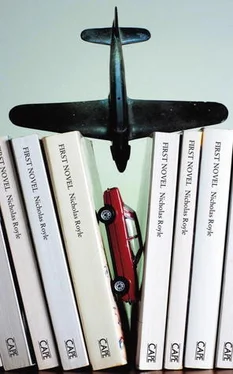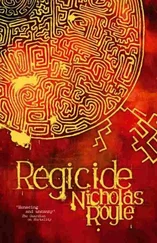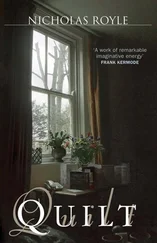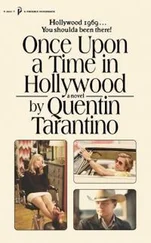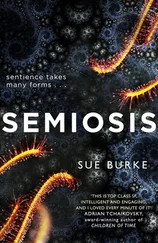Nor that some of the students would barely be able to construct a sentence using correct grammar and punctuation. Fortunately they are outnumbered by the good ones.
As I walk towards the end of the corridor I note that no light is visible from within the office. This means that none of my colleagues is in. In truth it’s rare that we are in at the same time. My own advertised ‘office hours’ are on a Tuesday morning. I unlock the door and walk past Will’s desk. Will is a big man with big hair that he greases and combs back from his forehead. He wears bootlace ties and a leather belt with a big silver buckle in the shape of a steer’s horns. When he is in, he listens to a wide variety of music on his computer, using headphones, from knockabout rockabilly to the most avant garde industrial noise, which he buys second-hand from Vinyl Exchange on Oldham Street. He also insists on having the window open, even in the middle of winter.
Frances is not in either. Tall, stick-thin Frances with the permanent dark shadows under her eyes, who talks incessantly about anything at all the moment anyone enters the room. I have long suspected that when no one is in she talks to the empty office. With Frances, every action demands a reaction. She is one of those people around whom it is impossible to relax.
I also pass Patience’s desk, Sellotaped to which there is a single piece of paper with ‘Patience’s desk’ written on it. There is nothing else either on, inside or near her desk. Patience is on long-term sick leave. I have seen her only once.
I sit down at my own desk, which I have attempted to screen off with large blue room-dividers. If anything, this has the effect of emphasising the presence of other people in the room rather than providing me with privacy. But now that I have got the screens, I can’t bring myself to get rid of them. To make my corner of the room seem a little less like the set of Jacques Tati’s Playtime , I have pinned up a few posters advertising academic conferences and readings in which I have taken part. Similarly, Will has stuck up a selection of covers of the how-to books he has written that have been translated into dozens of languages. Frances has just one poster, for the one-off read-through at the Bolton Octagon of a play she wrote fifteen years ago.
There is a knock at the door. I look at my watch. I turn sideways on to pass between two of my screens and navigate my way around the uncomfortable armchairs positioned around a coffee table in the middle of the room. I open the door.
‘Hiya,’ says Helen, an MA student I am supervising during her writing-up year.
‘Hello,’ I say as I hold the door open to allow her to enter the room.
I show her the way to my desk, as if she might have forgotten it, which is unlikely as she is one of the few students who make full use of their allocated number of one-to-one tutorials. Normally these students are the same as those who have trouble using correct punctuation around direct speech. Not so Helen, whose writing I regard as being close to publishable. In fact, given that it is more interesting than a great deal of the fiction that is piled high on 3-for-2 tables in Waterstone’s, it is definitely publishable, but in my opinion she still makes the wrong word choice from time to time. I regard it as my job to help her see where she has made the wrong choice and to help her make the right choice instead.
Helen is a little shorter than me. She is about twenty-seven or twenty-eight with long dark-brown hair that she usually wears gathered in a ponytail. While talking about her work, she will pull the ponytail over her right shoulder and comb her fingers through it and not toss it back over her shoulder until I say something with which she disagrees. She will not say that she disagrees with me, but the tossing of the ponytail is a clear sign. She has chestnut-coloured eyes that somehow manage to seem both sad and happy at the same time, a small, delicate nose and lips that I have never seen without vivid red lipstick.
She is also direct. Most of the students are, whatever the standard of their work. They are paying for the privilege of being taught by myself and my colleagues and some of them like to remind us of that whenever they perceive that they are not getting value for money. Helen is not like that, but she can be very direct.
‘What did you think of my short story?’ she asks. ‘Is it any good?’
‘I think it’s pretty good,’ I say, pulling a typescript from out of a pile of papers and newspaper cuttings to the left of the PC that I never turn on because I would rather bring in my Mac and connect to the university email system that way, wirelessly, and without having to choose between right-click and left-click. I find it hard to distinguish between right and left, east and west, on and off. When I lived in London I often had to use the Central Line. I would walk down the steps towards the platforms and I would stand for a moment in front of the maps that showed the two entirely different routes, one going east and one going west, and I would still sometimes choose the wrong one, ending up on a train bound for Hainault when I should have been going to Holland Park, or en route for West Ruislip when my destination was Mile End. It would take me two or three stops to realise my mistake.
‘Cool,’ says Helen, her eyes definitely looking happy rather than sad.
‘Yes. It’s very bold.’
‘But?’
I take a moment. ‘It’s bold in context. Would it seem bold taken out of context? If you weren’t you and I wasn’t me? If you weren’t studying for an MA in creative writing here and I wasn’t your supervisor. Would it seem bold then?’
‘I don’t know. You tell me.’ She levels her gaze at me like a challenge.
‘It’s interestingly metafictional—’ I begin.
‘But only in the context of this situation,’ she interrupts. ‘But then doesn’t that make it even more metafictional?’
I think about how to answer. ‘Metafiction isn’t one of my specialist areas,’ I say. ‘But we do have a PhD student doing research on it. I’m just wondering if it gets a bit Grand Guignol?’
‘But nothing happens,’ she says, taking hold of her ponytail, drawing it over her shoulder. ‘It’s all implied. Nothing happens on stage, as it were.’
‘But if it were to happen, as implied, wouldn’t it be a bit Grand Guignol?’
She looks at my bookcase. If she looks hard enough she will see my small collection devoted to Antonin Artaud and the Theatre of Cruelty. She might even spot my copy of Richard J. Hand’s Grand-Guignol: The French Theatre of Horror . She might wonder why I’ve implied that Grand Guignol is a bad thing.
‘Are you a bit creeped out by the thought of me walking down your street and checking out your place?’ she asks.
‘That would be a very predictable response.’
‘You wouldn’t want to be thought of as predictable.’
‘Of course not.’
‘Did I at least get the commas in the right place?’ she asks with her head on one side.
I smile. ‘It’s a good story,’ I say. ‘It’s publishable.’
‘Where could I send it?’
‘I keep a list of magazines up to date on my machine. An increasingly short list. I’ll email that to you with one or two suggestions.’
‘Thanks. Maybe there’s one that specialises in Grand Guignol?’
I don’t take my eyes from her.
‘What about you?’ she asks. ‘What are you working on?’ Once again, she has been very direct.
‘Bits and pieces.’
‘A novel?’
‘Maybe. Bits of journalism. Restaurant reviews.’
‘Cool.’
She looks away again. I am not sure whether I should say what is in my mind. Either I say it or I don’t. Either it turns out to be the wrong thing to say, or it leads to something. I wonder if she really has read my novel, as suggested by her story.
Читать дальше
